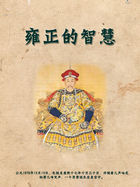Their first duty was to explain the law, and to organise the new peasant self-government. The lowest instance, or primary organ of this self-government, the rural Commune, already existed, and at once recovered much of its ancient vitality as soon as the authority and interference of the proprietors were removed. The second instance, the Volost--a territorial administrative unit comprising several contiguous Communes--had to be created, for nothing of the kind had previously existed on the estates of the nobles. It had existed, however, for nearly a quarter of a century among the peasants of the Domains, and it was therefore necessary merely to copy an existing model.
As soon as all the Volosts in his district had been thus organised the Arbiter had to undertake the much more arduous task of regulating the agrarian relations between the proprietors and the Communes--with the individual peasants, be it remembered, the proprietors had no direct relations whatever. It had been enacted by the law that the future agrarian relations between the two parties should be left, as far as possible, to voluntary contract;
and accordingly each proprietor was invited to come to an agreement with the Commune or Communes on his estate. On the ground of this agreement a statute-charter (ustavnaya gramota) was prepared, specifying the number of male serfs, the quantity of land actually enjoyed by them, any proposed changes in this amount, the dues proposed to be levied, and other details. If the Arbiter found that the conditions were in accordance with the law and clearly understood by the peasants, he confirmed the charter, and the arrangement was complete. When the two parties could not come to an agreement within a year, he prepared a charter according to his own judgment, and presented it for confirmation to the higher authorities.
The dissolution of partnership, if it be allowable to use such a term, between the proprietor and his serfs was sometimes very easy and sometimes very difficult. On many estates the charter did little more than legalise the existing arrangements, but in many instances it was necessary to add to, or subtract from, the amount of Communal land, and sometimes it was even necessary to remove the village to another part of the estate. In all cases there were, of course, conflicting interests and complicated questions, so that the Arbiter had always abundance of difficult work. Besides this, he had to act as mediator in those differences which naturally arose during the transition period, when the authority of the proprietor had been abolished but the separation of the two classes had not yet been effected. The unlimited patriarchal authority which had been formerly wielded by the proprietor or his steward now passed with certain restriction into the hands of the Arbiter, and these peacemakers had to spend a great part of their time in driving about from one estate to another to put an end to alleged cases of insubordination--some of which, it must be admitted, existed only in the imagination of the proprietors.
At first the work of amicable settlement proceeded slowly. The proprietors generally showed a conciliatory spirit, and some of them generously proposed conditions much more favourable to the peasants than the law demanded; but the peasants were filled with vague suspicions, and feared to commit themselves by "putting pen to paper." Even the highly respected proprietors, who imagined that they possessed the unbounded confidence of the peasantry, were suspected like the others, and their generous offers were regarded as well-baited traps. Often I have heard old men, sometimes with tears in their eyes, describe the distrust and ingratitude of the muzhik at this time. Many peasants still believed that the proprietors were hiding the real Emancipation Law, and imaginative or ill-intentioned persons fostered this belief by professing to know what the real law contained. The most absurd rumours were afloat, and whole villages sometimes acted upon them.
In the province of Moscow, for instance, one Commune sent a deputation to the proprietor to inform him that, as he had always been a good master, the Mir would allow him to retain his house and garden during his lifetime. In another locality it was rumoured that the Tsar sat daily on a golden throne in the Crimea, receiving all peasants who came to him, and giving them as much land as they desired; and in order to take advantage of the Imperial liberality a large body of peasants set out for the place indicated, and had to he stopped by the military.
As an illustration of the illusions in which the peasantry indulged at this time, I may mention here one of the many characteristic incidents related to me by gentlemen who had served as Arbiters of the Peace.
In the province of Riazan there was one Commune which had acquired a certain local notoriety for the obstinacy with which it refused all arrangements with the proprietor. My informant, who was Arbiter for the locality, was at last obliged to make a statute-
charter for it without its consent. He wished, however, that the peasants should voluntarily accept the arrangement he proposed, and accordingly called them together to talk with them on the subject.
After explaining fully the part of the law which related to their case, he asked them what objection they had to make a fair contract with their old master. For some time he received no answer, but gradually by questioning individuals he discovered the cause of their obstinacy: they were firmly convinced that not only the Communal land, but also the rest of the estate, belonged to them.
To eradicate this false idea he set himself to reason with them, and the following characteristic dialogue ensued:--
Arbiter: "If the Tsar gave all the land to the peasantry, what compensation could he give to the proprietors to whom the land belongs?"
Peasant: "The Tsar will give them salaries according to their service."















